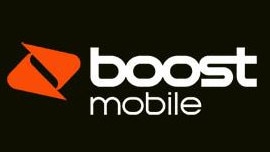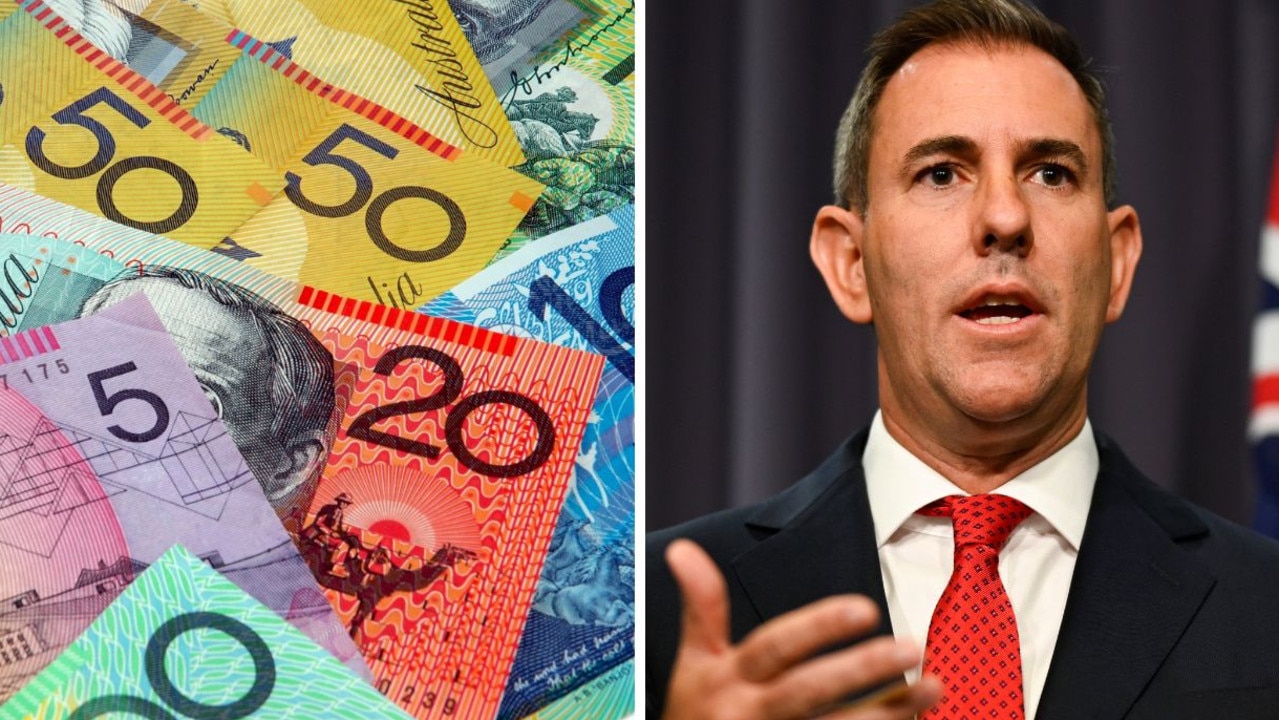Mobile phone, NBN, insurance, home loans: Best plans, deals revealed
Money experts explain why you should pay less than half what you’re currently paying for your phone. They also reveal other great deals.

Banking
Don't miss out on the headlines from Banking. Followed categories will be added to My News.
In the endless pursuit of the latest iPhone or Samsung, many Australians are locked into contracts of up to $100 a month.
But the telco industry is “fiercely competitive” with a number of smaller providers offering value for prepaid plans, according to comparison site Finder money expert Bessie Hassan.
She says consumers should consider switching to one of these deals if they’re out of contract but are happy with their phone.
The key is to take note of how much gigabyte you use and then give yourself a buffer when committing to a longer term deal.
Therefore, if you use 6GB a month, you’re likely to use 10GB per month in two years.
Taking advantage of these deals could cut your telco spend by more than half, Ms Hassan says.
“You shouldn’t be paying more than $30 to $40 a month for your phone plan,” she said.

At the recent Finder Awards, which recognises the best financial products based on value as judged by experts, Boost’s $30 plan was picked as the best prepaid sim under $40.
“Prepaid plans are all about maximising your mobile spend, and that’s easy to do with Boost’s $30 plan,” Ms Hassan said.
“Not only do you get 20GB of data on a 28-day expiry across Telstra’s network, but data rollover means it’s easy to take advantage of what you pay for.
“The telco industry is fiercely competitive, so plans can sharply increase in value over 12 months.”
The money expert said Aussies only used about 6GB on average per month, so any deal with more than 10GB was likely unnecessary.
“Smaller telcos generally provide better value simply because their operating costs are lower than the big three,” she said.
“Unlimited calls and texts are stock standard these days, so when comparing plans check the data allowance and any extras such as unmetered Netflix or Spotify.”
OTHER WINNERS OF FINDER AWARDS*
HOME LOANS:
• Best Owner Occupier Home Loan
Freedom Lend’s Variable Home Loan
Freedom Lend’s Variable Home Loan ticks every home-buying box with its combination of a very low interest rate, low fees and a 100 per cent offset account.
• Best Low Deposit Home Loan
Freedom Lend’s Variable Home Loan
With low fees and a very low rate, Freedom Lend’s Variable Home Loan means borrowers with lower deposits don’t have to miss out on one of the market’s most competitive offers.
Tips: The Great Australian Dream is alive and well with rock-bottom interest rates paving the way for first homebuyers to get on the property ladder. As well as rates, borrowers should factor in fees, features and flexibility of the loan when making their decision.
ACCOUNTS:
• Best Savings Account
Ubank Usaver
With a generous interest rate and no fees, UBank’s USaver savings account has been the highest ongoing rate savings account on the market for 12 months running.
Tip: There’s so many great transaction accounts with no monthly fees, so there’s no reason for settling with an account that has a monthly fee.
• Best Transaction Account
ING’s Orange Everyday
ING’s Orange Everyday account has no account keeping fees, no foreign transaction fees and no domestic or foreign ATM fees. It also refunds locally charged fees on domestic and overseas ATMs.
Tip: If you spend a lot of time overseas, or you shop online a lot from overseas merchants, make sure you look for an account with no foreign transaction fees.
INSURANCE
• Best Travel Insurance (Value)
Online Insurance
Online Travel Insurance stands out for its competitively priced comprehensive policy that still offers a considerable amount of cover. It includes unlimited overseas medical cover and substantial limits for cancellation, disruption of journey, lost luggage and personal liability.
Tips:
• Make sure you have enough cover and the right sort of cover especially when it comes to extra activities and tours like skiing and cruises.
• Pay close attention to exclusions such as pre-existing medical conditions.
• Best Health Insurance (Gold)
Phoenix Health Fund’s top-level hospital cover
Phoenix Health Fund’s top-level hospital cover came out on top for price and comprehensiveness with 38 private hospital treatments including pregnancy and weight loss surgery.
Tips:
• Make sure you’re paying for the right level of cover and not paying for things you’re not likely to need — like pregnancy and obstetric care.
• Best Car Insurance
Budget Direct
Budget Direct’s comprehensive policy topped the list for the best value car insurance in 2019. It had some of the lowest premiums, especially for younger drivers, and offers broad coverage, including the option to tailor cover to customers’ needs.
Tips:
• Look for additional extras like hire car while your car is being repaired or emergency roadside assistance.
• Increasing the excess you pay when you make a claim will lower the price you pay each month.
Best Life Insurance
NobleOak
NobleOak’s life insurance policy offers up to $15 million in cover that is fully underwritten. It allows policy holders to increase cover in the future by 20 per cent without another medical assessment and offers a counselling benefit up to $1,000.
Tips:
• One of the biggest issues with life insurance is underinsurance — make sure you’re accurately working out how much cover you need using calculators or asking an adviser and not just guessing
NBN
Best NBN Package 50
Exetel’s Standard Plus NBN plan
In an extremely competitive market, Exetel’s Standard Plus NBN plan was a highlight, with unlimited data matched by strong peak evening speed performance and affordable home phone bundle options.
Best NBN Package 100
Kogan NBN Gold Unlimited
If speed is what you need, Kogan’s NBN Gold Unlimited plan is the cream of the crop this year. Bundling impressive peak evening speeds with a bargain price point, Kogan has been a strong competitor since it launched into the NBN market in 2018.
Tips:
• For internet, you want to be spending between $60 and $70
• In terms of NBN speeds, if you’re a moderate internet user, you’ll want to choose the standard plus speed tier.
• If you have a big family or live in a share house and you all watch Netflix and use the internet, choose premium.
• If you’re switching to the NBN, now’s a good time to compare your options. You might think it’s easier to stick with the same provider, but chances are, there’s a better deal out there.
LOANS
Best Car Loan
MOVE
The MOVE new car loan offers a competitive rate and no monthly fees plus a few extra features to keep you happy. You can make extra repayments for no penalty plus benefit from a redraw facility and a car-buying service and it’s a competitive loan with extra benefits.
Best Personal Loan (Non-risk)
Sydney CU Special Offer Unsecured Personal
The Sydney CU Special Offer Unsecured Personal comes with features that help borrowers get the loan they need and save. This includes a minimum loan term of one year, a competitive interest rate of 7.99 per cent per annum and a waived application fee. Fee-free early repayments and a redraw facility also make this loan a category winner.
SUPER
Best Super Fund (Balanced)
AustralianSuper’s MySuper
AustralianSuper’s balanced fund is their MySuper product and one of six pre-mixed portfolios the super fund offers. The balanced fund provides investors with a strong rate of return over the period under analysis. As an industry super fund, AustralianSuper has a straightforward fee structure and competitive rates.
Best Super Fund (Growth)
Sunsuper Lifecycle Investment Strategy
With 80 per cent or more of its portfolio allocated to growth assets, Sunsuper’s Lifecycle Investment Strategy (balanced pool) is a growth fund suited to members investing over the long term. It has a strong track record of performance, delivering returns above industry standard over the past 10 years.
Tips:
• Generally the two big considerations for super funds are low fees and strong performance — how much are you paying in admin, management and insurance fees and what kind of interest is the fund getting?
• However you should also look at the asset allocation of your fund (i.e. is it Australian shares, global shares, bonds, cash, property etc).
• From a personal standpoint, it’s important to think about your risk level and your time frame. For example, how long before you need to withdraw the cash — if it’s within a couple of years, a conservative fund may be a better option because while growth funds rise quickly in good years, they can also drop in bad years, which means you may be worse off.
* Provided by Finder.
Continue the conversation on Twitter @James_P_Hall or james.hall1@news.com.au
Originally published as Mobile phone, NBN, insurance, home loans: Best plans, deals revealed



